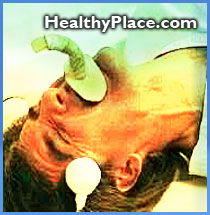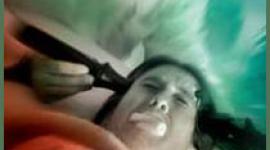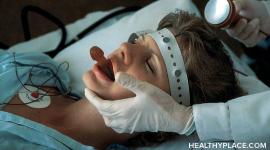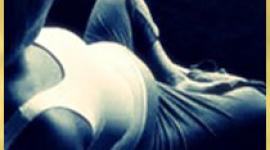Shocking Treatment Still Torture For Some
 Vivid images of electrodes attached to human heads and the resulting seizures are what we remember from barbaric electric shock therapy decades ago. But 50 years on, the therapy is still commonly used in New Zealand hospitals. Miriyana Alexander reports.
Vivid images of electrodes attached to human heads and the resulting seizures are what we remember from barbaric electric shock therapy decades ago. But 50 years on, the therapy is still commonly used in New Zealand hospitals. Miriyana Alexander reports.
"It's a hell of a good treatment. If I ever needed to, I'd have it. I'd give it to my wife and parents too."
IT MADE author Janet Frame confused, terrified and disturbed. It gave her nightmares and once caused her to smash a window with her fist.
That was 52 years ago, when electric shock therapy was used without anaesthesia or muscle relaxants and patients were restrained to prevent injury from violent fits.
Many would be surprised to learn that ECT (electroconvulsive therapy) is still commonly used in New Zealand. But now, according to psychiatrists, it is used more discriminately and humanely.
Frame suffered through 200 applications of the treatment, which sees an electric current passed through the brain for several seconds, at Christchurch's Sunnyside Hospital and Dunedin's Seacliff Hospital. In the just-published biography Wrestling with the Angel, she talked of the trauma of the procedure, the memory loss and nightmares it triggered.
"I dreamed waking and sleeping dreams more terrible than any I dreamed before . . . (if) only I had been able to talk about some of the terror, I know I would not have so readily translated my feelings into action. It sounds silly, but my clothes haunted me . . . Everything tortures (me) and is on fire and is coloured."
ECT is also known for its controversial use at Cherry Farm, Carrington and Oakley mental hospitals. It was used to punish children at Lake Alice Hospital in the 1970s for trivial offences like not making a bed or not eating dinner, and compensation is now being sought.
In 1982, Michael Watene died after receiving ECT at Oakley. In a subsequent inquiry, ECT procedures at the hospital were labelled "alarmingly deficient" at the time of his death. Watene received the ECT on a mattress on the floor of a small strongroom. After the death, the inquiry ordered changes to the way ECT was administered, and said an anaesthetist should remain in the treatment room until a patient recovered fully.
According to psychiatrists, we've come a long way since then. ECT is now administered in operating theatres with patient consent, patients are anaesthetised and given muscle relaxants. They say it is not used indiscriminately: patients suffering from serious and life-threatening depression and some manias where other treatments have failed, are given the therapy.
Hospitals nationwide confirmed they used ECT, and a top psychiatrist believed its use would increase to counter growing rates of depression.
Health Minister Annette King has no plans to review its use.
Controversy has raged about the treatment for decades. Psychiatrists spoken to by the Sunday Star-Times were big fans of ECT, saying it was a legitimate and effective treatment for severe depression.
Many said it had saved lives, and they would have the treatment themselves if necessary.
Opponents label it inhumane and a Waikato patient advocacy group has presented a petition to parliament asking for ECT to be outlawed.
ECT works by replenishing neurotransmitters in the brain. The chemicals the nerves use to communicate with the brain, they are depleted in depressed people. The Royal Australian and New Zealand College of Psychiatrists guidelines for ECT said its effectiveness had been " established beyond doubt".
It said the therapy was among the least risky of medical procedures carried out under general anaesthesia, and was substantially less risky than childbirth.
Deputy director of mental health at the Health Ministry, Dr Anthony Duncan, also a psychiatrist, acknowledged public concern about memory loss associated with ECT.
"People definitely often have gaps in their memories around the time of the treatment.
"This is because ECT induces seizures, which impair the laying down of memory tracks."
Duncan said research showed it was not thought ECT caused long-term memory loss, but that possibility had to be balanced against the desperate state people were in when ECT was considered.
"People are often at risk of suicide or dying from dehydration or starvation because they are so severely depressed they have stopped eating and drinking."
Last year, 53 patients were treated with ECT at North Shore Hospital, getting an average of 10 or 11 each.
About four patients a week are treated with ECT at Auckland Hospital. They usually have two treatments a week for about four weeks. Director of mental health Dr Nick Argyle said while ECT "was an odd thing to do to people" it flipped them out of their depressive state.
Duncan said psychiatric medication such as Prozac simply suppressed the symptoms of depression, while a treatment of ECT meant a patient would no longer be depressed.
"There is no significant harm from ECT. It has saved the lives of some of my patients, and in many cases I wish I'd used it earlier. I sometimes have patients begging for it because they know it's the only thing that works for them.
"I think it's a hell of a good treatment. If I ever needed to, I'd have it and I'd give it to my wife and parents too."
Waikato Hospital delivers 35 ECT treatments a month for an average of five patients. At Timaru Hospital, 30 patients have been given the electric shock therapy since January, while Taranaki Hospital treats just two or three patients a year with ECT. Wellington Hospital treats eight patients a week with ECT. Two ECT treatments were provided at Palmerston North hospital in the last six months, and 45 patients at any one time are being given the treatment in Christchurch. Dunedin health officials confirmed they used ECT, but could not provide figures.
Capital Coast Health's director of mental health Peter McGeorge, a psychiatrist, said the public was probably not aware it was still being used. "But used properly it has its place. When Janet Frame was in hospital it was used quite indiscriminately, but that's not the case now. And the fits used to be violent, causing fractures and tears, but a muscle relaxant is given now, meaning the reaction is not so severe.
"Its use is likely to increase because by 2020, depression will be the most common illness in the world. So if rates of depression increase, so will ECT use."
A woman who was given ECT 42 times 40 years ago at Porirua Hospital when she was 18 told the Sunday Star-Times she feared the treatment would kill her.
The woman, who did not want to be named, said ECT made her "wake up feeling half dead. Everything was swimming in front of me and I could hardly stand up or walk. It was like being hit by a sledgehammer."
Lying in her bed waiting for the treatment was the worst part, she said. "It was like waiting to be executed. Nurses held you down by the knee and shoulder and we had a gag put into our mouths. Then the big bang came and I was unconscious."
The woman suffered short term memory loss after the treatments. "My brain was all scrambled and it took a long time to remember things. It's affected my whole life. My memory is very bad, I have nightmares and every now and then I get lost, even though I've lived here for years.
"It was my worst nightmare. The staff had no regard for our feelings, they were like custodians of concentration camps. ECT is a criminal assault and it should be outlawed."
Waikato Patients Rights Advocacy spokeswoman Anna de Jonge said ECT caused brain damage and should be abolished.
"It is torture. They do it to cattle in the slaughterhouse before they cut their throats, and they shouldn't do it to people. The brain is the most important part of the body, why are we doing this to it?"
She said ECT was not acceptable just because psychiatrists said that was all they had to treat severely depressed people. "If you had a headache I wouldn't be able to hit you on the head with a hockey stick and say sorry, that's all I've got to treat you. It's unacceptable."
Overseas opinion is also divided. Some psychiatrists want ECT banned, while others have said the procedure is as safe as extracting teeth.
next: Shock Therapy Cuts Hospital Costs
~ all Shocked! ECT articles
~ depression library articles
~ all articles on depression
APA Reference
Staff, H.
(2000, August 20). Shocking Treatment Still Torture For Some, HealthyPlace. Retrieved
on 2026, March 5 from https://www.healthyplace.com/depression/articles/shocking-treatment-still-torture-for-some



